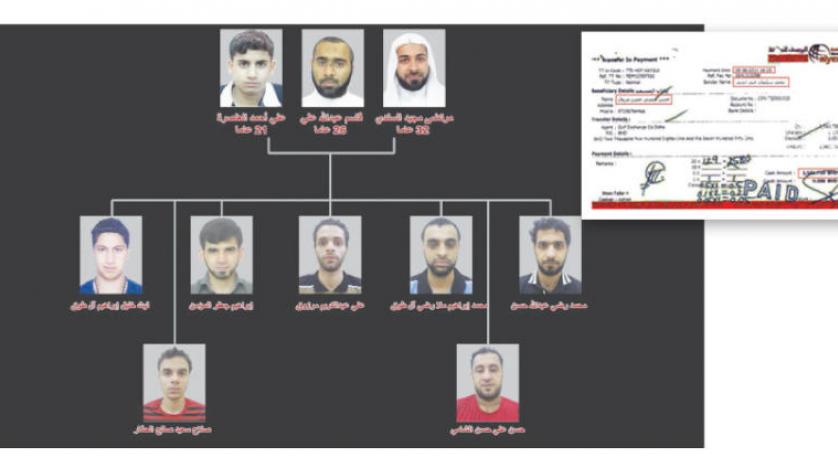Manama- Bahraini security services revealed on Monday new information proving Qatari involvement in the financing of terrorist acts targeting homeland security and stability.
Financial statements were released showing transactions from a Qatari businessman sent to deputy leader of the dissolved Al-Wefaq Association which is convicted for terror funding.
Released statements showed transactions linked to the Bahrain 2015 bomb attack which killed two policemen.
According to information received by Asharq Al-Awsat newspaper, the Bahrain interior ministry said that the 2015 bombing was one of many regrettable incidents Qatari funding had aided among the many other terror attacks harming the gulf state.
Bahrain’s Minister of Interior also stressed that Qatar’s policies endanger the security of the Gulf Cooperation Council (GCC).
In a previously published interview with Arab Asharq Al-Awsat newspaper, Sheikh Rashid Bin Abdullah Al-Khalifa affirmed that the threats come from Doha’s policy of giving safe haven to terrorist and extremist groups.
He added that Qatar is “still meddling” in Bahrain’s internal affairs and that this is done through exporting terrorist and extremist ideologies to the kingdom.
Sheikh Rashid added that Qatar also has naturalized a number of Bahraini families, affecting Bahrain’s social security; it has prevented the export of gas to Manama, forcing Bahrain to import it from Russia although Qatar exports it to different countries around the world; and it also disrupted the construction of a bridge between Bahrain and Qatar by not providing its share of the Gulf support program like its GCC counterparts.
On the Iranian interventions in Bahrain’s internal affairs, Khalifa said that the most important forms of the Iranian intervention in his country’s affairs are exporting extremist ideology, smuggling of weapons and explosives, spreading explosives-manufacturing technology and training Bahraini nationals to use weapons, explosives and field skills in order to support terrorism in Bahrain.
He noted that terrorist operations are managed by people who have fled and are present in Iran, confirming that his country has strengthened security capabilities in various aspects to face such challenges.
These interventions include the hostile statements made by Iranian officials at all levels.
“Iranian satellite channels and media have been working around the clock to spread hatred, malicious rumors and distort facts to serve their agenda in the region,” he said.
Bahrain is part of an Arab anti-terror quartet, which is led by Saudi Arabia, the UAE and Egypt—all of which have effectively boycotted Doha for two months now for the peninsula’s support for extremist groups in the region.
